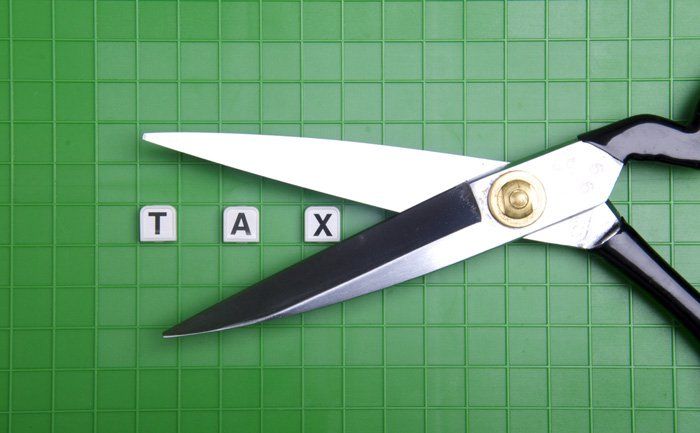Corporations benefitting from tax cuts, wages flat and consumer spending affected by higher costs
by July 29, 2018 9:59 am 778 views

Economist Mervin Jebaraj says you can point to good and bad in the GOP tax cuts that have been in effect for a little over six months. The UA Walton College of Business analyst pointed to positive news on the corporate front, but says workers and consumers are still not seeing robust longer-term benefits.
Appearing on this week’s edition of Talk Business & Politics, Jebaraj noted that corporate earnings have performed well from the tax cut windfall, but there is still hesitancy in how that money may be invested.
“We have a pretty decent picture of what the first three months of corporate earnings were in 2018. We’re starting to get a better picture of what the second three months in 2018 were,” he said. “A significant chunk of corporate America’s earnings report, in the first quarter at least, came from those tax savings.”
He noted that Home Depot saw about 95% of its income growth come from tax savings, while Apple was around 65% and Google was about 26%.
“Now, obviously the stock market is not going to respond very positively if most of your income growth came from tax savings, as opposed to, you know, new business and selling more to customers, but it is important to show that a lot of corporate America has healthier balance sheets as a result of the tax savings that were passed through at the end of 2017,” he noted.
Jebaraj said additional positive news for corporations lies in the early business investment figures presented. While growing, it has not reached the levels seen in 2014 and 2015, he said.
It is both good and bad that many publicly traded companies have used a chunk of the tax savings to buy back about $700 billion in cumulative stock over the past six months, according to Jebaraj.
“That tells me that businesses are largely not seeing great future investment opportunities for them to invest their money in, and so they’re returning it back to shareholders. I’m someone that doesn’t think that all share buyback programs are bad. Obviously, they do contribute to issues around inequality that we have in this country, but in general what share buybacks do is they take money from companies that don’t see future investment returns or have good business ideas, return them to shareholders so shareholders can then invest them in companies that they might see better business opportunities from,” Jebaraj said.
On Friday, the government released the first report of second quarter gross domestic product (GDP) of 4.1%, stronger than first quarter revised GDP growth of 2.2%. Jebaraj said that it’s still wait-and-see on how robust the revised numbers and the remainder of the year will be for GDP, but he would be surprised if it was powerful enough to pay for the estimated $1 trillion in debt the tax cuts are on pace to produce.
Workers’ wages have not rebounded as promised from the tax cuts and that situation has been compounded by inflation, a tick-up in interest rates, and higher energy prices. Jebaraj said the promise of wage gains has been the most “disappointing story” of the tax cuts.
“We haven’t really seen any significant movement on the wage front, so right after the tax cuts passed you saw a lot of announcements of bonuses, but at the end of the day it doesn’t seem like there were any more announcements of bonuses than usual… and none of these bonuses really contributed to annual wage increases,” he said.
“If you’re looking at the first quarter, the average worker’s wages, when adjusted for inflation, actually went down. On a year-over-year basis from June 2017 to June 2018 there has been absolutely no change in the wages received by the average worker,” Jebaraj said, who emphasized that workers’ wages have been stagnant for several years.
“The tax cuts were supposed to change that, but we haven’t seen any evidence of that yet. What we have seen is that consumers have gotten some extra money in their pockets from tax savings, not from increased wages but just fewer taxes taken out by the federal government. In large part, unfortunately, those tax cuts are being eaten up by the gas price increase that also coincided during the same time. So, you’re not seeing a lot of extra consumer spending from all of this yet,” he said.
You can watch Jebaraj’s full interview below.
